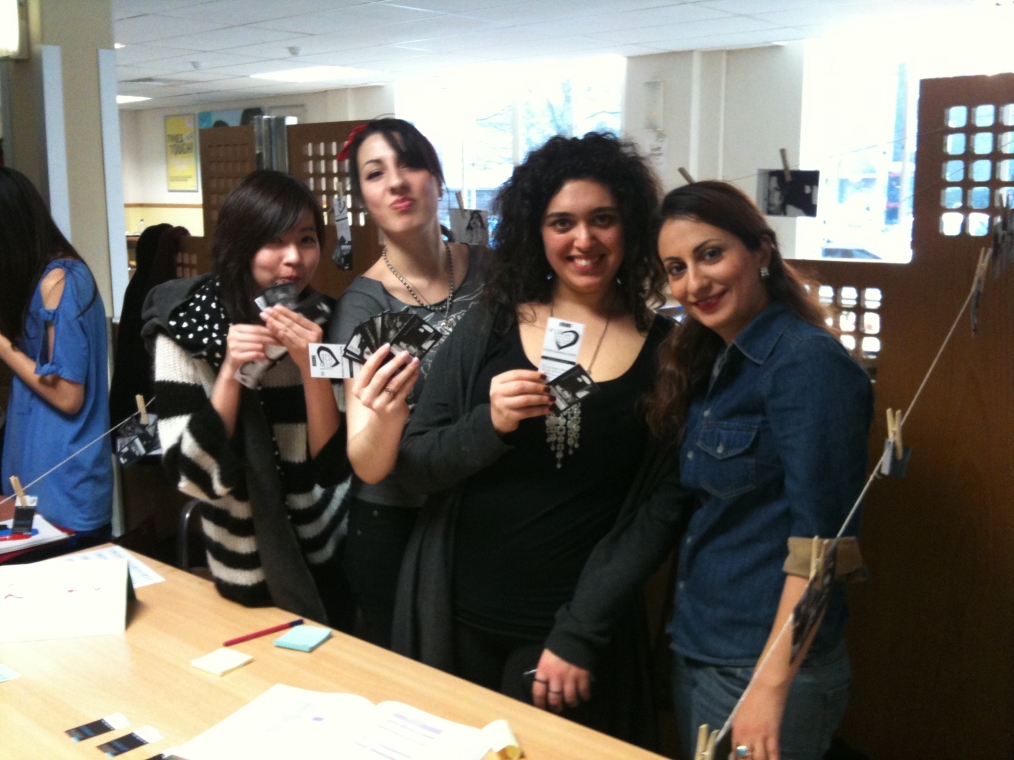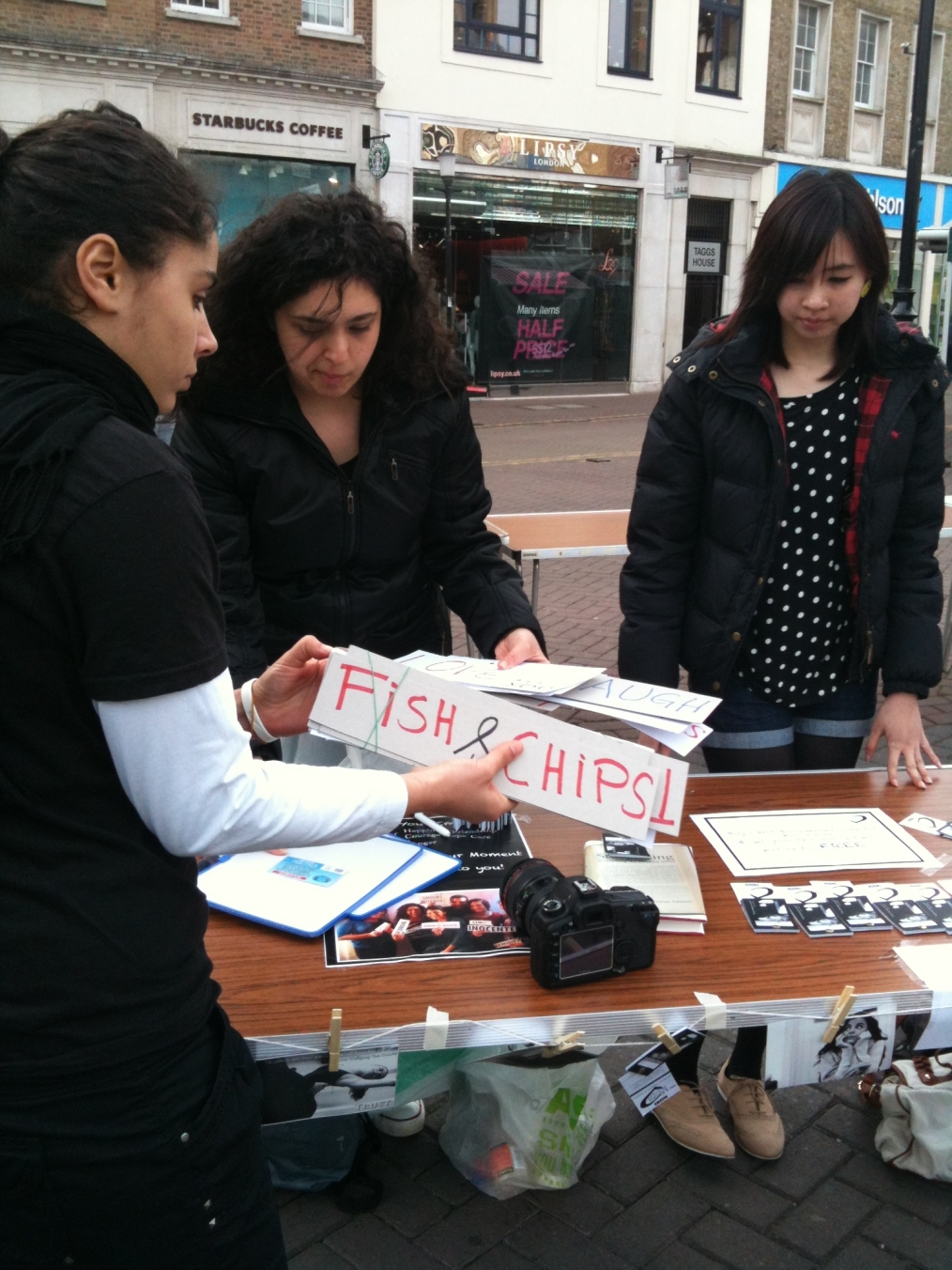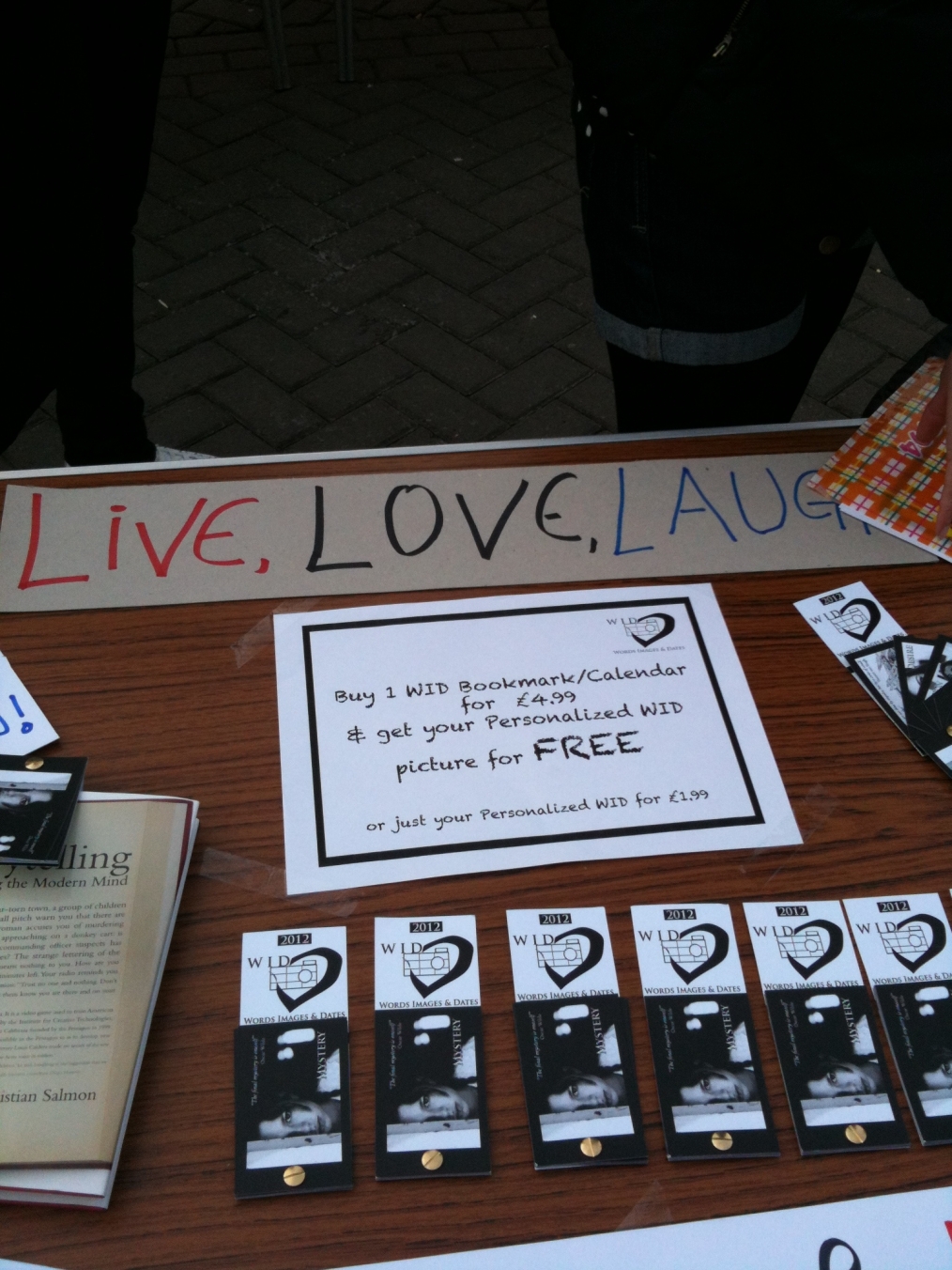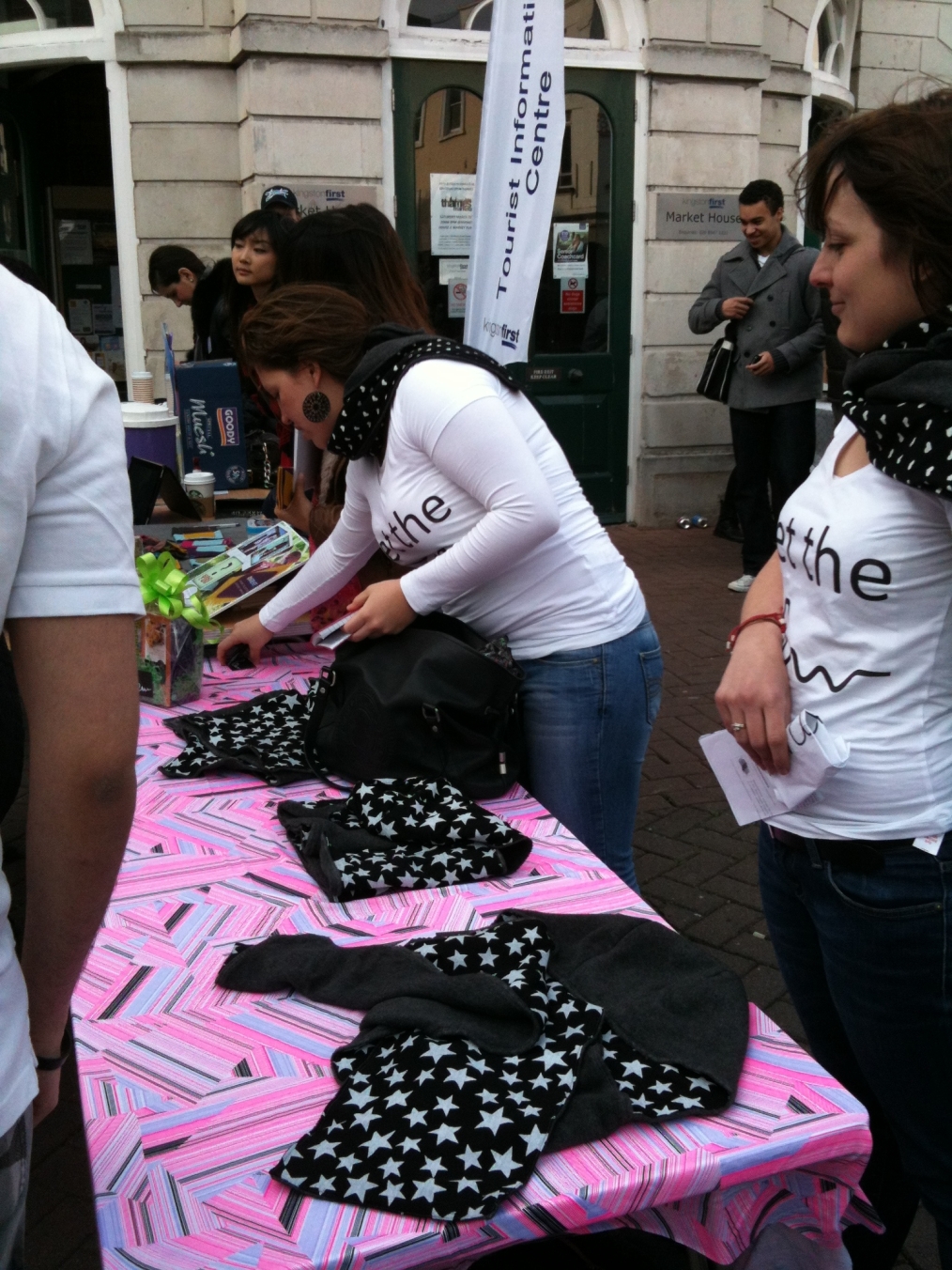This blog entry is supposed to be a reflective essay related to the academic year I spent studying Advertising and the Creative Economy at Kingston University. I have spent hours wondering how to start this paper and it is not because of a lack of inspiration, rather that so much happened in so little time, it is difficult to decide which event or experience should be highlighted. Truth is this year has been a constant challenge that has taught me many things about a variety of topics, and mainly things about myself. As I realised in April attending this course was nothing like what I was used to in my previous French business school and disrupted the perfect life plan I had in mind when I arrived. In fact, it has broadened my horizons and shown me that there are always new things to explore, and that I shouldn’t stop looking for the special job I will have a thriving passion for until I find it. To quote Steve Job: “The only way to do great work is to love what you do. If you haven’t found it yet, keep looking. Don’t settle. As with all matters of the heart, you’ll know when you find it.” Although this idea has already been in a corner of my mind for quite a while, I didn’t think I could actually experience life this way as it might be too unstable. Throughout the year, I’ve met inspirational people and attended stimulating lectures that made me realise the fear of failure is in fact the greatest barrier to success. Through this essay, I will identify the main points and experiences that made a significant impact on my learning and state of mind, trying to keep a coherent order. I will retrace how they connect and see how they can affect my future decisions in the conclusion.
The first particularity of this master is the diversity of its students. During my year abroad at UCD Dublin in Ireland back in 2008, I had already been confronted to a variety of nationalities, but students all came from a similar scholar background as we were part of the business school. In the MACE class, cultural diversity is not only present in the country of origin of its students but also in the undergraduate scholar background. Despite being extremely interesting on a cultural level, this mix of designers, marketers, film makers and writers has proven to be challenging when it came to group work. As Kalina pointed out in her own blog, Kingston University’s policy is to train us into team working by putting a maximum emphasis on group works. Although I was familiar with working in teams composed of people from different countries, I found that adapting to different schools of thought was more difficult. Throughout the year, I have been teamed up with students from various scholar backgrounds and it seemed to me that in terms of organisation and dynamic within the groups, it was easier to work with those who had received a marketing/business education before. However, as the weeks passed and the end of the year approached, I noticed that it got easier to make our teams work effectively. I suppose that adaptation was possible after all, with each and every member doing their best to push our groups in the right direction. Indeed, Babiker, Cox and Miller have proven that cultural distance between overseas students doesn’t have a negative impact on school performance and can, on the opposite, enhance it. As a matter of fact, I feel like this experience has forced me to break away from pre-established patterns, and enabled me to be more open towards new methods of working. I also learnt to delegate and focus on the things I do best. I am convinced that this experience will be of great help in my future career as a marketer/publicist in the music industry. Indeed, it will allow me to work more effectively with musicians and journalists, and understand that their working habits might differ from mine.
The second major event that impacted my learning in the MACE course was the creation of our own businesses. I have previously blogged about Words Images and Dates, and briefly reflected on the challenges and rewards this company has brought my team mates and I. However, I would like to highlight the fact that running our own company and financing it with our own funds went one step further in the team working process described above. In fact, it was a real life laboratory to experiment and apply our entrepreneurship skills to the real world. Not only did this assignment make us cope with different sorts of situation that can occur, it also made us actively witness all the steps needed in order to start a business from scratch, therefore giving us the necessary tools for our future. The first step was to identify customer needs and prototyping in order to make sure that our product would satisfy the demand from the market. Following Terwiesch and Loch’s theory, this process of collaborative prototyping enabled us to customise our product in order to make it both useful and nice to look at, according to our sample customer’s taste. Once satisfied with our final prototype, came the search for an appropriate service provider who could produce our 150 bookmark-calendars. While the rest of the girls did an amazing job at selling our product to individuals, I must admit I did poorly. According to Kotler, it is important to readjust a plan when its implementation is not satisfying and I therefore decided to start targeting companies instead of individuals, thinking that they might be interested in an affordable Christmas or New Year gift for their employees and clients. Putting my shyness aside, I pushed myself to contact various French companies in order to sell them our products. This proved to be a successful initiative as 1/3 of our calendars were sold to these companies and Words Images & Dates later decided to adapt its products in order to make them customisable for the needs of the B2B market. We also put an emphasis on marketing and communication throughout the experience and used Genia and Joelle’s skills to create an advertising that we are extremely proud of as it reflects the image and identity of our company.
Thirdly, I had some extremely inspiring classes tackling topics such as leadership in the creative economy and managing creativity and innovation. Having for professional goal to do marketing, management or public relations in the music industry, these classes were of major importance to me as they taught me how to motivate and manage people in order to nurture their creativity. I was able to grasp some important notions and theories that will surely serve me in my career. For example, according to Wilson and Strokes and Benjamine, independence and freedom is an integral part to fostering creativity. However, Morean argues that constraints can also encourage creativity as they provide a ‘stimulus for invention.’ I was lucky to verify Morean’s theory while interviewing London based rock band Damn Dice which proved to be more creative and efficient at writing music when given strict deadlines to meet. A good manager or leader should therefore be able to inspire and supervise creative work by putting fair constraints while letting enough freedom to the artist; and most of all, (s)he should be able to adapt her/his approach depending on the personality and special needs of the creative.
The fourth major learning this year brought me is the ability to critically evaluate opinions and write essays in a formal manner. I was surprised to discover that the British assessment system is very different from the French. Four years of practical thinking, straight to the point answers and power point presentations had indeed made me absolutely unable to write academically. After having struggled during semester one in order to try and understand how to write relevant and critical essays, I feel much more confident today for the dissertation and am absolutely certain that I will be able to use this knowledge and working method later on. Not only did essay writing teach me how to write and support my ideas, it also taught me to look for various sources, structure my thoughts in order to be more convincing and enabled me to read a range of material to deepen my understanding of topics in a way I couldn’t have done otherwise.
Last but not least, I feel like living in a new country, making new friends and being confronted to a whole different lifestyle throughout the year has made me more confident and given me the strength to pursue my dreams. As a matter of fact, I am not afraid anymore to take the extra step that would make a difference. I used to be anxious at the idea of networking and “selling myself,” as I was scared that I might annoy people or not be taken seriously. I have come to realise that by thinking this way, I could miss out on some serious opportunities, whereas pushing myself a tiny bit could lead me to success. Keeping this in mind, I started travelling and networking around Sweden, France and the UK which lead me to make some interesting contacts in the music industry as stated in my previous blog from December. What was then only a project has now come to life and I am now in charge of the promotion and public relations of Swedish rock band Crashdïet for the French territory. As a result, I have spent the past few months getting in touch with journalists, magazines and webzines in order to get them to interview the band at Hellfest Open Air festival, the biggest French metal festival. Despite having previously worked as social media manager at Roadrunner Records, which has given me some useful contacts and knowledge of the French music industry, I have always specialised in marketing and only had a basic knowledge of public relations. Working as a freelance publicist for an already established band, without any label to back me up or anybody to teach me the job has taught me self-reliance and forced me to take initiatives. In a way, my undergraduate and postgraduate education prepared me for this kind of situation as I have been taught to think practically rather than to passively incorporate knowledge. Indeed, I am currently learning on a daily basis and this keeps me alert and excited. Amabile found self-motivation to be a driver to initiative and success as it is sought in passion. This theory could definitely apply to my case and I am now looking forward to Hellfest as I have planned some interviews for Crashdïet and cannot wait to see the results of all this pre-operational hard work.
I quoted Steve Job in my introduction, and therefore I shall quote him again in my conclusion. This master’s year at has shown me clearer than before that life is all about “connecting the dots” and staying in touch with your passion. Looking back on these experiences, I feel like I am more self-reliable than I was before and more motivated than ever to get started in my career. As Nikki Sixx points out in his book ‘This Is Gonna Hurt,’ I start to realise that we never stop learning and that each day is an experience that can teach us a lot if we give it all and follow our heart. I also noticed that the more I try, the less I feel anxious about getting out of my comfort zone, and it feels good, because surpassing this state creates a better potential for creativity, inspirational and effective dynamic change (Eloff and Ebersöhn). To conclude, with the end of this semester another chapter of my life comes to an end and I can relate to Ati’s blog on the topic. Indeed, despite being happy and excited about the future, I can’t help but feeling slightly nostalgic. Time has come for me to pack my bags again and go back to France in order to start looking for a job. Mostly, I am excited about this idea and working at Hellfest this summer might help me connect with music professionals and hear about exciting offers in France or somewhere else in Europe. Thanks to the different experiences and learning highlighted above, I feel like I now have all the cards in my hands to start looking in the right direction and get closer to my goal.


















